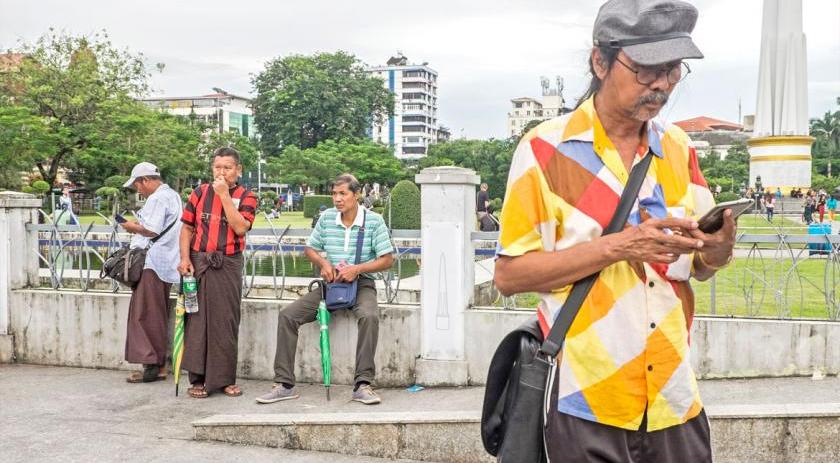
A senior government official says that the government is set to focus on supporting the digital economy next year.
Deputy Director-General of Posts and Telecommunications U Than Thun Aung said this in his speech during the Myanmar Connect 2019 Conference on Tuesday.
U Than Thun Aung said regulatory areas that will be the focus next year to support digital economy include regulation balancing, customer stratification, consumer protection, cybersecurity, support for the digital economy, regional integration, and social media and spam.
Realising the importance of building a strong digital economy, the government recently announced the Myanmar Digital Economy Roadmap and the formation of the Digital Economy Development Committee (DEDC) with the goal of enabling the country’s digital transformation, introducing digital government, digital trade and innovation, and to develop a digital economy across all sectors for inclusive and sustainable socio-economic development.
“The digital economy has to be something for the whole country and we are trying to bring digital development in accordance with the country’s environment,” U Than Htun Aung, said.
By most accounts, the telecommunications sector has grown tremendously over the last five years. Despite being one of the least developed economies in Southeast Asia, Myanmar is on par with its neighbours in terms of mobile phone and internet penetration. According to a government survey in the previous fiscal year, there were 56.8 million mobile phone users in 2017-18 against a total population of 54 million, implying a penetration rate of more than 100 percent.
In fact, 4G availability in Yangon was the fourth highest in ASEAN at over 80 percent, trailing Bangkok, Singapore and Jakarta but ahead of Kuala Lumpur, Phnom Penh, Ho Chi Minh City and Manilla, according to a May report by OpenSignal, an independent mobile analytics company.
However, U Than Htun Aung pointed out much still needs to done in terms of infrastructure to develop a truly digital economy.
“The current telecoms infrastructure is not enough to fully support a digital economy and this is one of the main challenges for Myanmar. We have a responsibility to develop telecoms infrastructure to support and to develop the country’s digital economy. So, we will have to develop this infrastructure with mobile operators and related stakeholders,” U Than Htun Aung, said.
Under the Myanmar Digital Economy Roadmap, the government is focusing on nine priority sectors: education; healthcare; agriculture, fisheries and livestock; tourism and hospitality; manufacturing and SMEs; financial services; technology and the startup ecosystem; digital trade; and transportation and logistics.
“Myanmar is a late bloomer on the digital front so we will leapfrog other economies with available technology. Our country has good potential to ride the digital wave. We can facilitate this by investing more in tech education, skills and by having policies and laws that are supportive of digital developments,” U Mya Moe Aung, a committee member of the Digital Economy Development Committee, told The Myanmar Times in March.
Under the roadmap, the goal is to raise digital transformation across business sectors by 10 pc by 2020 and up to 30 pc by 2025, increase utilisation of digital technologies by SMEs by 20 percent in 2020 and 50 pc in 2025, as well as raise digital financial service transactions to 15 pc in 2020 and 30 pc in 2025.By 2020 and 2025, mobile subscriptions are targeted to hit 50pc and 55pc of the population, respectively, while the number of Internet users is expected to reach 45pc and 50pc, respectively, over the same period. Meanwhile, foreign direct investments in the digital economy are estimated to hit US$8 billion and US$12 billion by 2020 and 2025, respectively, up from US$6 billion currently, if all goes to plan.
Currently, Myanmar is in the midst of exploring the development of 5G networks, with Ooredoo Myanmar and ZTE Corp working on the project.
According the 2018 United Nations E-Government Development Index, Myanmar is ranked 157 out of 193 countries, while the country’s digital innovation ranked 171 in the world out of 190 in the World Bank Ease of Doing Business in 2019.












